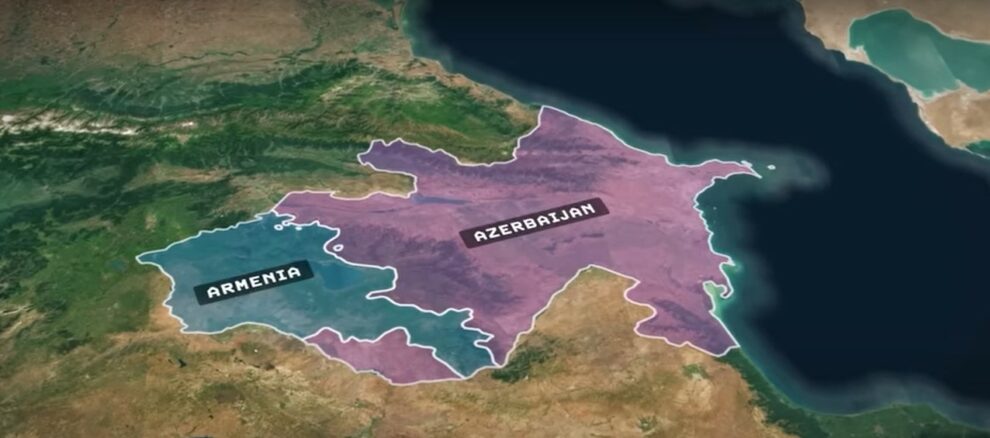Thousands of refugees from Nagorno-Karabakh streamed into Armenia on Monday, as the leaders of Azerbaijan and ally Turkey hailed Baku’s victory over the rebel enclave at a summit.
While Azerbaijan showcased its regional alliances, Russia hit back at embattled Armenian Prime Minister Nikol Pashinyan after he blamed Moscow for the swift defeat of the breakaway territory.
Several days after the fighting, the first refugees arrived in Armenia on Sunday and 6,650 people have so far entered, Yerevan said on Monday.
AFP reporters saw the refugees crowding into a humanitarian hub set up in a local theatre in the city of Goris to register for transport and housing.
“We lived through terrible days,” said Anabel Ghulasyan, 41, from the village of Rev, known as Shalva in Azeri.
She arrived in Goris with her family by minibus, carrying her belongings in bags.
Armenia and Azerbaijan have fought two wars in the last three decades over Nagorno-Karabakh, a majority ethnic Armenian enclave within the internationally recognised border of Azerbaijan.
Azerbaijan launched a lightning operation on September 19 to seize control of the territory, forcing the separatists to lay down their arms under the terms of a ceasefire agreed the following day.
It followed a nine-month blockade of the region by Baku that caused shortages of key supplies.
The separatists have said 200 people were killed in last week’s fighting.
Baku announced two of its soldiers also died when a mine hit their vehicle on Sunday.
Azerbaijan’s state media said officials held a second round of peace talks with Nagorno-Karabakh’s ethnic Armenian community aimed at “reintegrating” them.
But on the road heading to Armenia, more and more residents from the region appeared to be trying to get out as the witnesses said cars were snarling up in traffic.
At the refugee centre in Goris, Valentina Asryan, a 54-year-old from the village of Vank who fled with her grandchildren, said her brother-in-law was killed and several other people were injured by Azerbaijani fire.
“Who would have thought that the ‘Turks’ would come to this historic Armenian village? It’s incredible,” she said, referring to the Azerbaijani forces.
She was being housed temporarily in a hotel in Goris and had “nowhere to go”.
Turkish President Recep Tayyip Erdogan lauded Baku’s “historic success” at a meeting with Azerbaijan’s leader Ilham Aliyev in the country’s western exclave of Nakhichevan.
“The window of opportunity has opened to settle the situation in the region. This opportunity must not be missed,” Erdogan said.
Aliyev vowed that the rights of ethnic Armenians in the Nagorno-Karabakh region would be “guaranteed”.
“Karabakh’s residents — regardless their ethnicity — are citizens of Azerbaijan,” he said.
Armenia’s premier on Sunday sought to deflect blame for the outcome on long-standing ally Russia, signalling a breakdown in the countries’ security pact.
In nationally televised comments, the Armenian leader said the security agreements between the two countries had proved “insufficient”, suggesting he would seek new alliances.
Moscow on Monday slammed Pashinyan’s comments in an angry broadside, accusing the premier of trying to “absolve himself” from responsibility.
“The leadership in Yerevan is making a huge mistake by deliberately trying to destroy Armenia’s multifaceted and centuries-old ties with Russia,” Russia’s foreign ministry said.
Pashinyan later held a meeting with Russia’s interior minister Vladimir Kolokoltsev where he “underlined the importance of consistent cooperation” of law enforcement in the two countries.
Washington said Monday that Russia had shown it is not a reliable partner.
“Russia has shown that it cannot be relied on as a security partner,” State Department spokesman Matthew Miller told reporters.
Armenia is a member of the Collective Security Treaty Organisation (CSTO) — a Russian-dominated group comprising six post-Soviet states that had pledged to protect each other if attacked.
